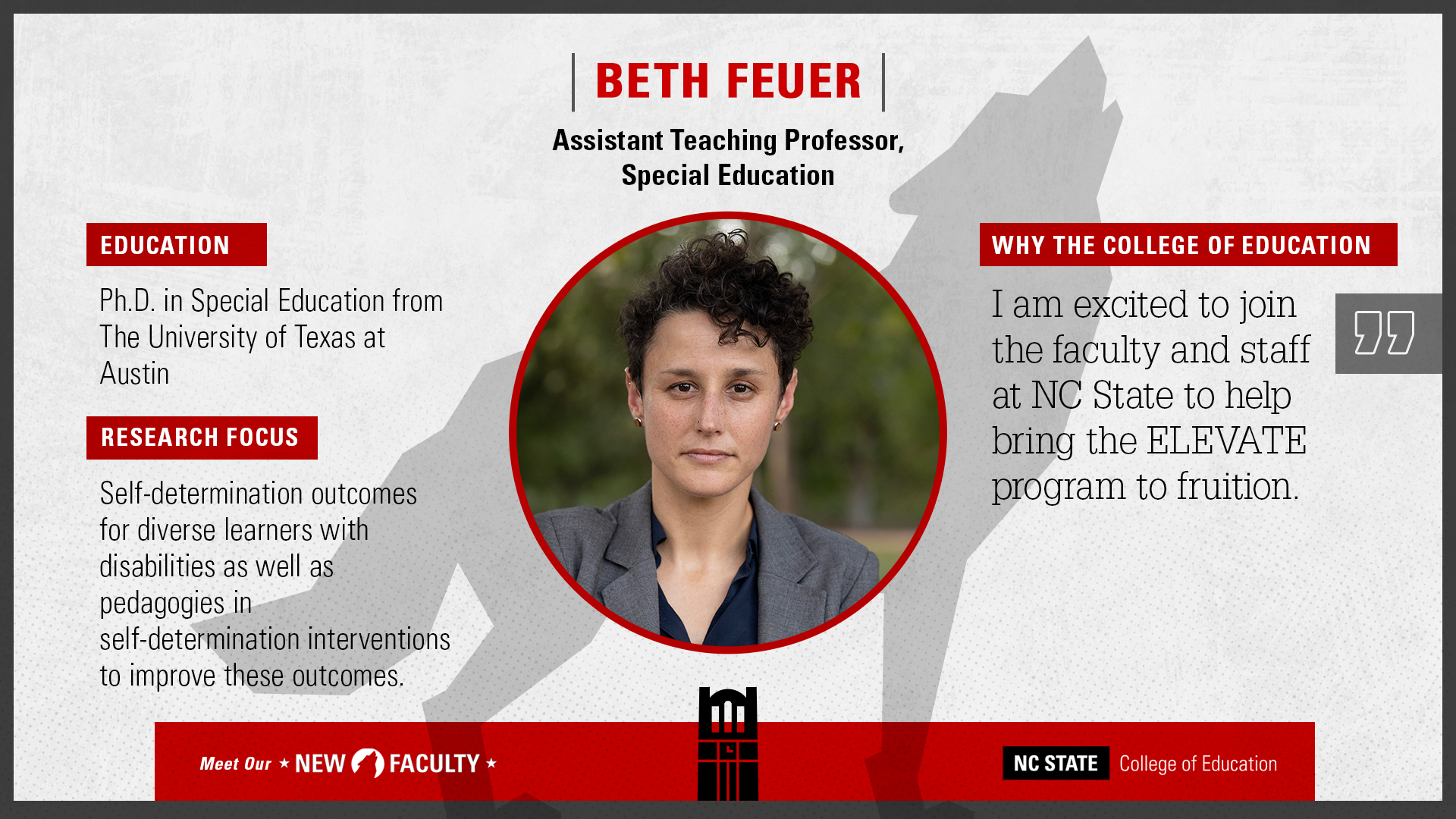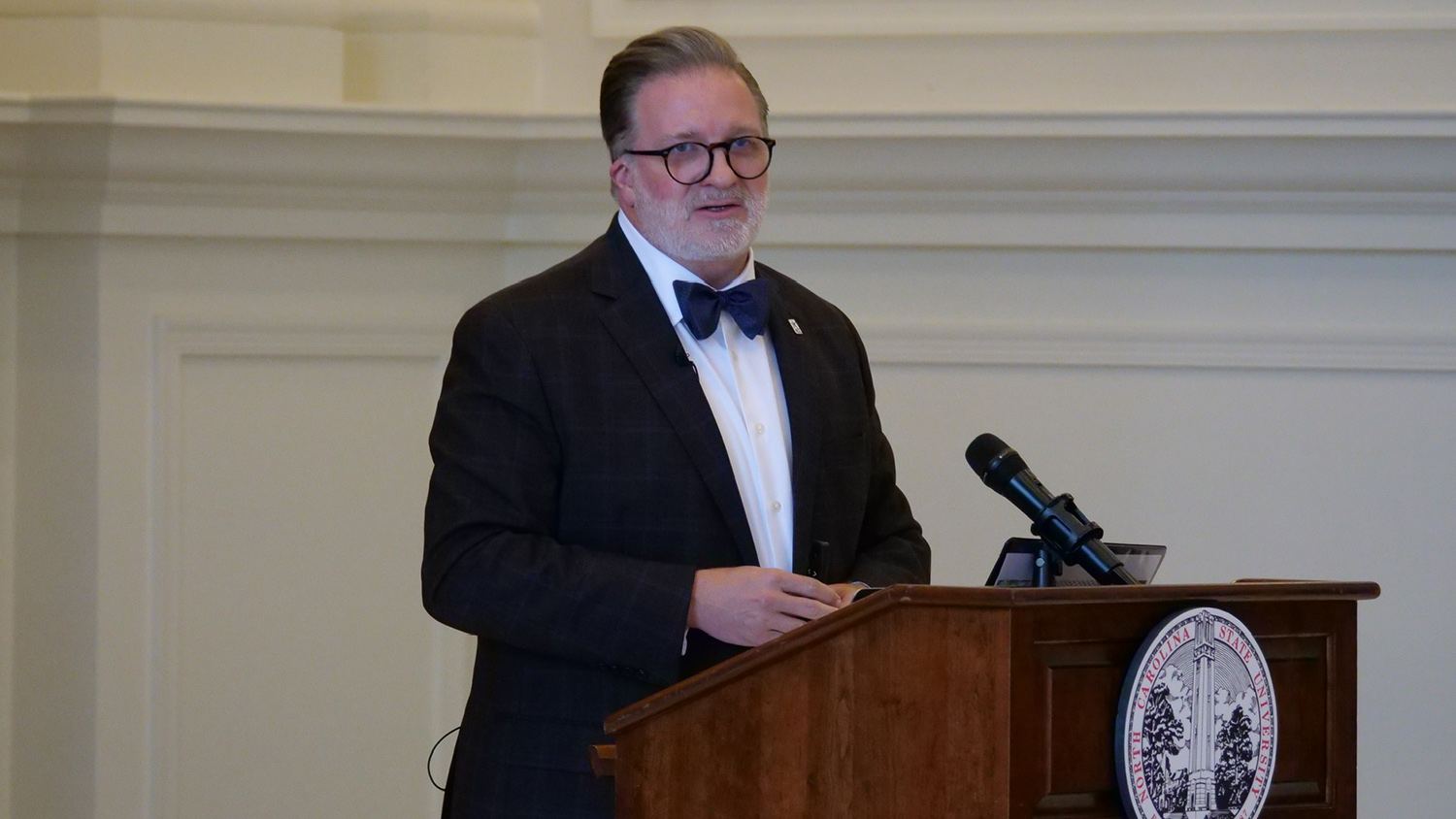Beth Feuer: ‘I Feel it is My Role to Cultivate a Classroom Environment Where Learners Are Safe to Share Their Diverse Opinions’

Beth Feuer will join the NC State College of Education during the 2024-2025 academic year as an assistant teaching professor of special education, a role through which she will support NC State’s new Inclusive Postsecondary Education Program (IPSE) called Elevate.
Feuer received her Ph.D. in Special Education with a specialty in equity and diversity from The University of Texas at Austin in 2024. Her research focuses on self-determination outcomes for diverse learners with disabilities as well as pedagogies in self-determination interventions to improve these outcomes.
Learn more about Feuer below:
The following Q&A has been edited for length and clarity.
Why did you choose a career in education?
Through my involvement with Best Buddies, a club that links up students with and without disabilities in 1:1 friendship, I saw the benefits and positive impact on students with and without disabilities. My engagement in this organization really drove my desire to pursue a career in educating students with disabilities.
What inspired you to pursue a doctoral degree?
As I was teaching in public school, I became increasingly interested in how I could better support students with diverse identities with disabilities, and how to equip future special educators with the tools to meet the needs of this student population and become equity-focused educators. I was eager to dive into the research and expand my knowledge base on these topics, leading to the pursuit of my doctoral degree in special education.
What sparked your interest in your area of studies?
As a special educator engaged in transition planning, I collaborated with diverse students and their families to better understand their postsecondary goals and dreams, and taught students’ self-determination skills to facilitate the attainment of their goals. The personal experiences that I had with my students and their families led to a deeper curiosity of the research surrounding the topics of special education and educational equity, and how I could become a better educator to support this student population.
What is one moment or project in your academic career that you are particularly proud of?
I can’t say that I can pinpoint just one moment that I’m particularly proud of, but I think it is really the combination of all the moments where I taught pre-service teachers a skill in the college classroom, and then was able to observe them put that skill or strategy into practice and reflect on their instruction in their fieldwork settings.
What is your teaching philosophy?
As an educator, I feel it is my role to cultivate a classroom environment where learners are safe to share their diverse opinions and experiences, feel a sense of agency, and where marginalized voices are centered and validated across content, and within the classroom environment. I utilize a strengths-based and student-centered approach, modeling for students what an inclusive classroom looks like. Additionally, I strive to reduce barriers to engagement and student marginalization within my classroom through the use of evidence-based instructional and high-leverage practices, and deliver content informed by culturally sustaining and critical pedagogies. Ultimately, I aim to create a learning environment that is deeply rooted in community, whereby students utilize and apply their funds of knowledge and personal experiences, and we work together to co-construct knowledge and develop new understandings from one another.
What do you hope your students will learn from you?
It is my goal that students walk away from my classes more empowered and equipped with the tools they need to be better advocates for themselves and others. I want them to learn the essential skills, tools, and support necessary to have a sense of agency over their lives, and attain their educational, professional and personal goals.
What do you believe makes an extraordinary educator?
I think what makes an extraordinary educator is someone who takes a genuine interest in their students and fosters a sense of community, intentionally making curriculum and content applicable and relevant to students’ lives and holds students to high expectations. In addition, an extraordinary educator is critically reflective of their own pedagogical practices, and is committed to equity and inclusion for all learners.
- Categories:

